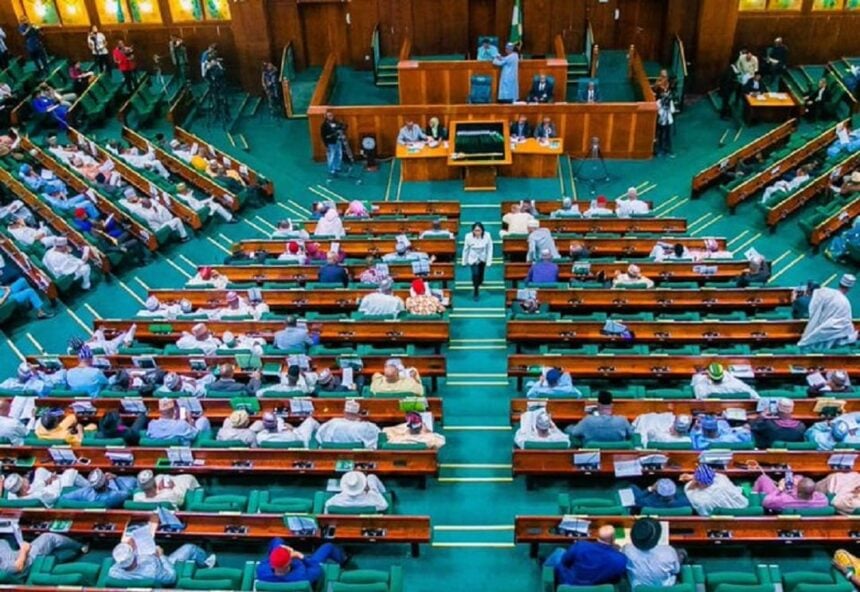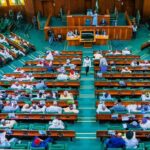The House of Representatives, on Tuesday, passed through second reading, a Bill seeking inclusion of Inter–University Centres among beneficiaries of tax imposed under the TETFUND Act; for improved training and research.
The proposed legislation titled, “Bill for an Act to Amend the Tertiary Education Trust Fund Act, No.16, 2011 to Provide for the Inclusion of Inter–University Centres among beneficiaries of the Tax Imposed under the Act;’ was sponsored by the Deputy Speaker, Hon. Benjamin Kalu and eight others.
The inter-university centres in the country include institutions such as: National Mathematical Centre (NMC), Abuja; National Institute for Nigerian Languages (NINLAN), Aba, Abia State; Nigerian French Language Village (NFLV), Badagry, Lagos State; and National Arabic Language Village, Ngala, Borno State.
Leading the debate on its general principles, one of the co-sponsors, Hon. Tolani Shagaya recalled that the Tertiary Education Trust Fund (TETFund) was established under the Tertiary Education Trust Fund (Establishment) Act, No.16 of 2011, to provide supplementary support for the general development of public tertiary institutions across the federation.
He noted that the scheme has grown to become one of the most impactful institutional frameworks in the nation’s education sector through the improvement of infrastructure, provision of learning, instructional tools and equipment, training and re-training of both academic and non-academic staff, and fostering research and innovation in the nation’s public tertiary institutions.
The lawmaker, however, said that the Inter-University Centres, which are established by Acts of the National Assembly to serve all Universities, have been excluded from this support framework, despite the fact that they play a unique and indispensable role in advancing tertiary education across Nigeria.
According to him, these Inter-University Centres designed to fill critical academic, linguistic, and research gaps, serve as specialised knowledge hubs for all, but sadly they currently do not receive any support from the Tertiary Education Trust Fund, even though their academic and training work directly supports the same university system that education tax is meant to fund.
Shagaya therefore said that the amendment is not just necessary, it is a matter of equity, inclusion, and academic relevance, adding that the swift passage of the Bill will enhance the overall development of the nation’s tertiary education system.
He said, “InterUniversity Centres support the entire university ecosystem by offering centralised expertise, hosting advanced research, conducting nationwide language training, and enhancing academic cooperation across institutions. Yet, because they are not classified as traditional universities, polytechnics, or colleges of education, they have been excluded from the funding streams that sustain similar tertiary institutions.
“This situation has placed the Inter-Universities Centres at a serious disadvantage — leaving them underfunded, under-equipped, and undervalued, despite their clear national mandate. This Bill seeks to correct that anomaly and to ensure that Inter-University Centres are recognised for their contributions and supported accordingly. Mr. Speaker, Honourable Colleagues, the Bill proposes following key amendments to the Principal Act – (a) Amendment of section 4 which provides for the recognition of InterUniversity Centres under the Act; (b) Amendment of section 7 which provides for a new allocation/sharing ratio of 2:1:1:1 which will consequently provide for funding of the InterUniversity Centres (this ratio is could be further adjusted at the Committee Stage when inputs of stakeholders have been taken); and (c) Amendment of section 20 which provides for the interpretation and meaning of “Inter-University Centres”.
“This is a practical and inclusive amendment that ensures no vital academic institution is left behind. By providing for the recognition of Inter-University Centres as eligible beneficiaries of the tax imposed under the Tertiary Education Trust Fund Act, the Inter-University Centres would be reinforced, become stronger, and become more coherent structural support for the nation’s tertiary education system.”
The bill was put to a voice vote by the Deputy Speaker, Hon. Benjamin Kalu, who presided over the session. It was passed and referred to the Committee on TETFUND.
READ MORE FROM: NIGERIAN TRIBUNE
WATCH TOP VIDEOS FROM NIGERIAN TRIBUNE TV
- Let’s Talk About SELF-AWARENESS
- Is Your Confidence Mistaken for Pride? Let’s talk about it
- Is Etiquette About Perfection…Or Just Not Being Rude?
- Top Psychologist Reveal 3 Signs You’re Struggling With Imposter Syndrome
- Do You Pick Up Work-Related Calls at Midnight or Never? Let’s Talk About Boundaries







